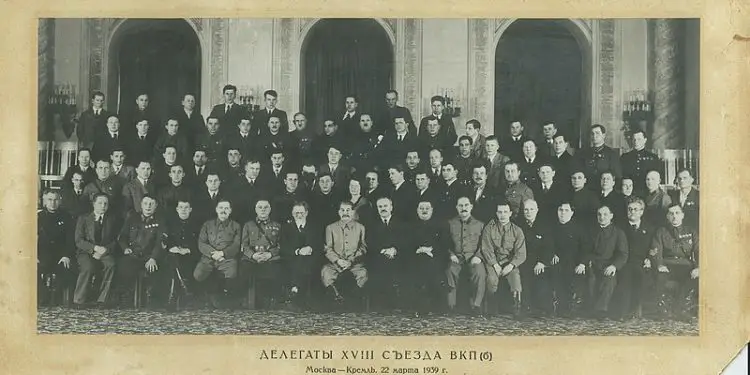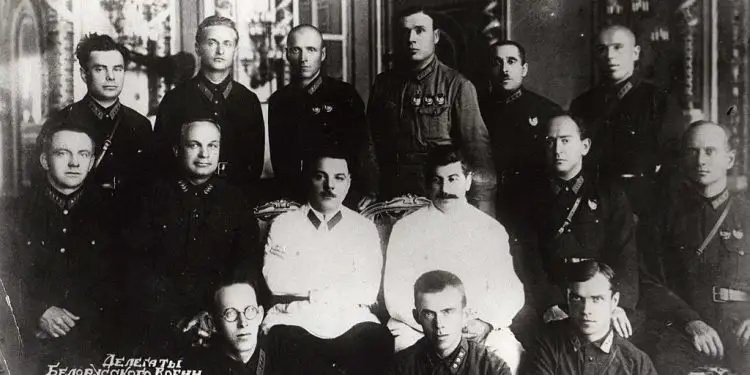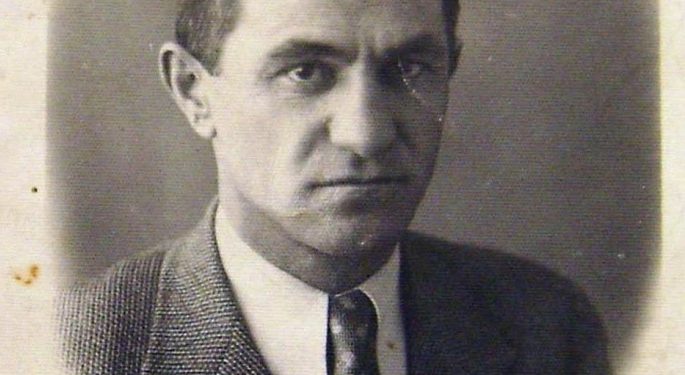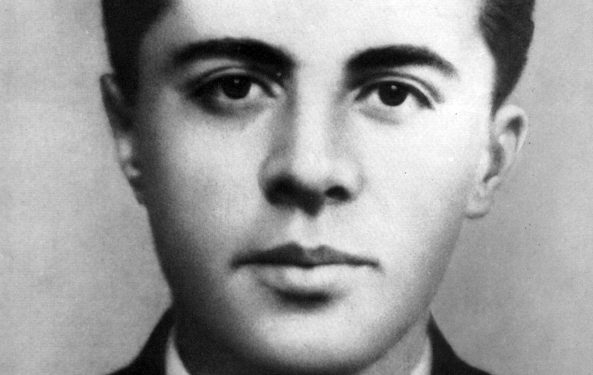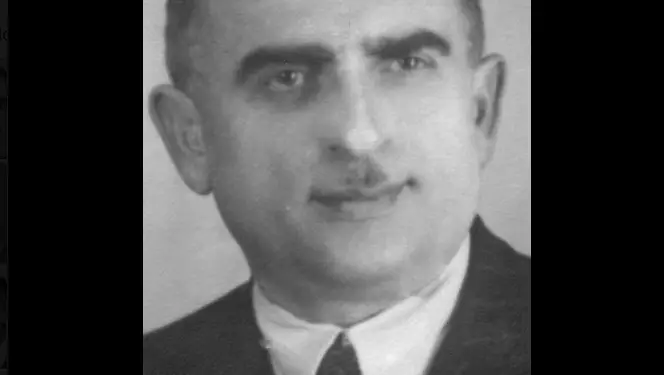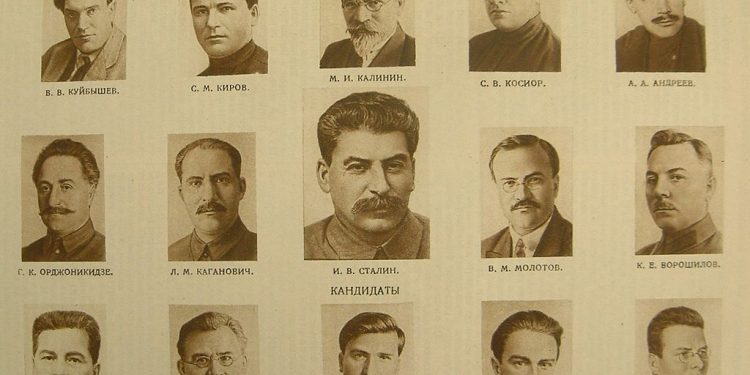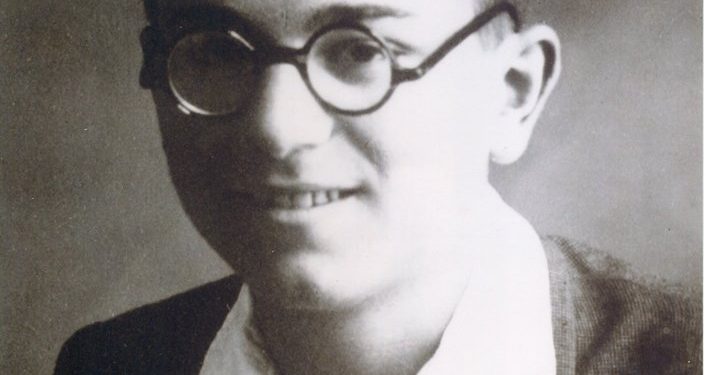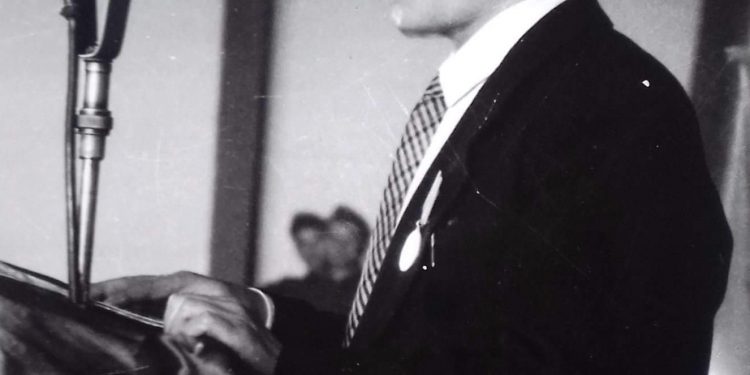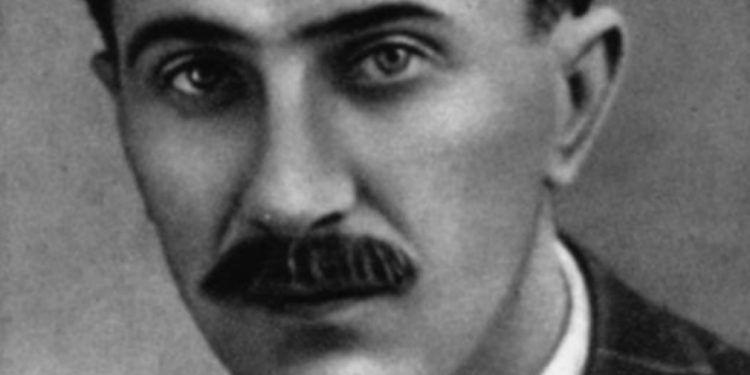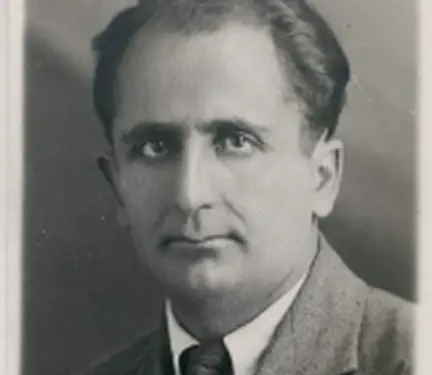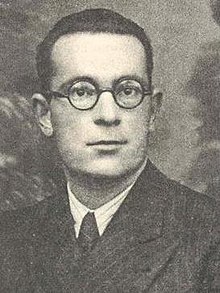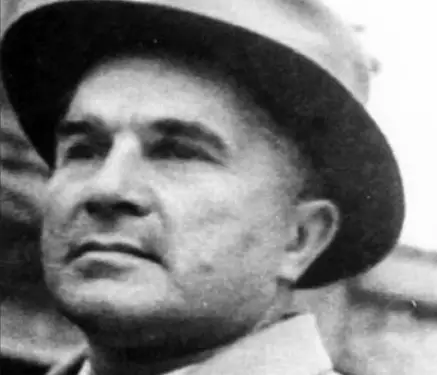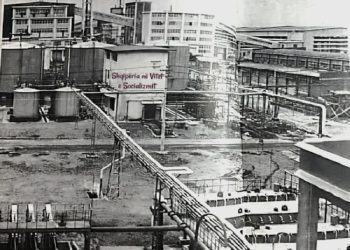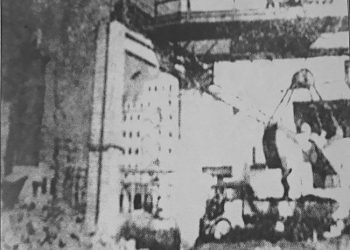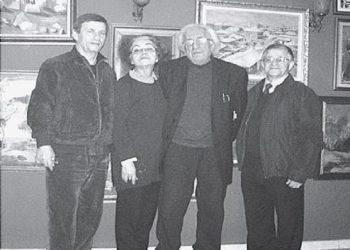Dashnor Kaloçi
Memorie.al publishes the unknown story of how the communist left ideas first entered Albania in the late 1920s and early 1930s, through books, magazines and literature, which came from Western European countries. where many Albanian students studied and where a part of the anti-Zogist political diaspora was settled, which had left Albania with the failure of the government led by Fan Noli in December 1924. This anti-Zogist diaspora that was grouped in Vienna formed KONARE ( National-Revolutionary Committee) which was headed by Fan Noli, Lano Borshi, Ibrahim Jakova, Qamil Bala, Bedri Pejani, Nush Bushati, Kostandin Boshnjaku, etc., who were funded by the Communist International based in Moscow. The KONARE organization at that time had an intense political activity, publishing its newspaper “Liria Kombëtare” led by Halim Xhelo and Lano Borshi and it had a great help especially from the German communists who were led by Wilhelm Pik, i who occasionally awaited the leaders of this political grouping.
The ideas of the communist left first entered Albania in the late 1920s and early 1930s, through books, magazines and literature which came from Western European countries, where many Albanian students studied and where a part of the anti-Zogist political diaspora which had left Albania with the failure of the government led by Fan Noli in December 1924, after the return of Ahmet Zogu to power. This anti-Zogist diaspora that was grouped in Vienna formed KONARE (National-Revolutionary Committee) which was headed by Fan Noli, Lano Borshi, Ibrahim Jakova, Qamil Bala, Bedri Pejani, Nush Bushati, Kostandin Boshnjaku etc., who were funded by the International Moscow-based Communist. The KONARE organization at that time had an intense political activity, publishing its newspaper “Liria Kombëtare” led by Halim Xhelo and Lano Borshi and it had a great help especially from the German communists who were led by Wilhelm Pik, i who occasionally awaited the leaders of this political grouping. For the first time KONARE participated in an international congress held in Berlin in 1931, which was also attended by Gjegj Dimitrov, where she was represented by Lano Borsh. The leaders of KONARE, led by Noli, at that time influenced the Comintern and made possible the issuance of scholarships to a group of 18 Albanian students, who continued their higher studies in the Soviet Union. This group of students who studied in different universities of the Soviet Union, consisted of: Ali Kelmendi, Asllan Pejani, Haki Stërmilli, Qamil Çela, Fetah Ekmekçiu, Demir Godelli, Fetah Meqemeja, Ymer Domi, Naum Prifti, Rexhep Fillati, Reshat Kë Reshit Daci, Sejfulla Malëshova and Selim Shpuza. In the early 1930s, as in many Eastern European countries where the communist left propaganda had penetrated under the example of the Soviet Union, in Albania this began to become fashionable. In those years a great role in the spread of communist leftist ideas was played by Albanian students who returned from the universities of the Soviet Union. Many Albanian emigrants who had settled in France, Italy, Austria, Belgium, Switzerland, etc., who later returned to Albania, such as Qamil Çela, Qamil Bala, Bedri Pejani, also played a key role in spreading these ideas. Ali Kelmendi, Zai Fundo, Zef Mala, etc. The communist movement in Albania began to take shape in the second half of the 1930s, with the creation of several small cells, mainly in the cities of Shkodra and Korça. This came after the VII Congress of the Comintern, which was held in Moscow in 1937, where Gjergj Dimitrov, seeing the danger posed to Europe by German Nazism, insisted on organizing and financing left-wing communist parties in various countries. Europe, to oppose him. In this context, in a special meeting organized by the Balkan section of the Comintern, special tasks were left for Albania.
Establishment of the first communist groups
This thing appeared in the city of Korça where the first communist group was created at that time, which included: Andrea Zisi, Aristidh Qëndro, Zai Fundo, Koci Xoxe, Miha Lako, Gaqo and Pilo Peristeri, Sotir Vulkani, Koci Bako, Sotir Gurra , Petraq Titani, Stefo Grabocka et al. The connections they had with Greece and the Greek communist movement, from which they were morally and materially supported, had a great influence on the creation and consolidation of that group. Having a good organization and as a result of the help of the Greek communists, the “Communist Group of Korça” disguised under the Society “Work”, in the voting for the local elections of 1938, won the right to be represented in the post of Deputy Mayor, with her candidate Koci Xoxen. Also at that time was created the other communist group of Shkodra, which consisted of: Zef Mala, Qemal Stafa, Vasil Shanto, Qamil Gavoçi, Çun Jonuzi, Tuk Jakova, Qemal Draçini, Niko Xoxi etc. This group was also able to be created and consolidated thanks to the great help of the Montenegrin communists, who entered and left Shkodra freely from the beginning of the `30s, bringing the necessary Bolshevik literature. This group was led by Zef Mala, who after a scholarship from King Zog, had studied for two years at the Faculty of Philosophy in Vienna, Austria, where he came in contact with left-wing European ideas through the literature he studied regularly. Being a rebellious character, Zef Mala took part in all the movements and protests of the Viennese trade unionists, where he was arrested by the police as very active. After being detained for some time due to his political activity, he was released and forced to return home, as he was left without any means of livelihood, because he was deprived of a scholarship by the Ministry of Education of the Albanian government. , due to violation of student status. Under the leadership of Zef Male, the Communist Group of Shkodra at that time began to publish the “Green Bulletin” (so named because of the green caps it had) through which they propagated communist ideas and opened its sections in several other cities. as in Dibër, Kukës, Tirana, Durrës, Elbasan, Korçë, Vlorë, Gjirokastër and up to Kosovo. Apart from Korça and Shkodra, where the communist movement was more widespread at that time, it was also felt in Tirana, where in the mid-1930s, students of the Fultz Technique began to read and spread Bolshevik literature. After that, in 1936-’37, the Communist Youth Group was created in this school, which was led by Anastas Lula, Sadik Premtja and Sadik Staveleci. There were great divergences between the three communist groups then operating apart from each other, as each group claimed to have the support of the Comintern and its respective seal. This was due to the worldviews they held, where some were driven by the liberal left-wing ideas of Western Europe and the rest were conservative and left-leaning in Eastern Europe and the Soviet Union. The monarchical regime, and personally Zogu, was against the communist movement and tried to fight it, although with some communists, such as Tajar Zavalani, Koci Xoxe, Ali Kelmendi and others, it was enough with just a temporary arrest or exile that they had as the vacancy.
Zef Mala founded the Communist Party in 1939
Only in 1938, when the Communist Movement in Albania was no longer a “calamity affair”, King Zog was forced and arrested and brought before the court as defendants, about 73 communists of the Shkodra Group led by its leader Zef Mala. The trial against this group took place on February 4, 1938 in the great hall of the Municipality of Tirana and in addition to Zef Malë, who was arrested among the last 73 defendants, his subordinates were also in the dock, as : Qemal Stafa, Vasil Shanto, Qemal Draçini, Niko Xoxi etc. Zef Mala accepted all the accusations made against him, defending his leftist views and as a result, the trial panel gave him the maximum sentence, sentencing him to six years in prison, while Qemal Stafa, Vasil Shanto and others , received lighter sentences. In 1939 after the invasion of Albania by Italy, Zef Mala was released from prison in Berat where he was serving his sentence and in July of that year, he made the first attempt to create the Communist Party. He was able to do this successfully and a large number of young people gathered around him who called themselves communists, mainly from his former Shkodra Group, who had been released from prisons. This group, which was considered a Party and represented the second communist current (the first was the Bolshevik one in Moscow) that had entered Albania from Western European countries, had intense political activity until November of that year when Zef Mala was arrested. . Malë’s arrest came after large demonstrations he organized in several major cities of the country, where that party had its sections. The Italians had Zef Malë at the top of the lists to arrest him since their arrival in Albania in April ’39, as he was regularly denounced next to them by some left-wing exponents, who saw him as the main rival to be put at the head of the leadership of the Albanian communist movement. After the arrest, the Italians locked Zef Male in the Ventotene camp in Italy, where many other communist-minded Albanians were interned. Even after Malë’s internment in Ventotene, his main collaborators of the Shkodra Group, such as Qemali, Vasili and Tuk Jakova, not only did not sever ties with him, but through letters, asked him for opinions on how to act. , so as not to interrupt their communist activity. From Zefi’s internment, came the weakening of that political grouping that was considered by them as the Communist Party, as his comrades were unable to maintain ties with him, which led to the dissolution of that party.
Koço Tashko, in Italy in ‘41 for the Communist Party
Attempts to create a Communist Party at that time were made by other persons and groups. One of them was Koço Tashko, who had studied and graduated for two years in Moscow from the Comintern School, where he was in charge of the Anglo-American sector of that school, where his friend Sejfulla Malëshova also studied. Gjergj Dimitrov, who at the time held the post of Secretary General of the Comintern, had appointed Tashko as the Comintern’s envoy to the Balkans. After staying for two years (1935-’37) in France and Belgium on a mission from the Comintern to organize Albanian emigration with revolutionary leftist ideas, Tashko was sent to Albania by Dimitrov to form the Communist Party. He was able to return to Albania with the necessary literature of the VII Congress of the Comintern, only in 1938, when King Zog pardoned him the death penalty. After that he moved to Tirana, where he opened a small hardware store on “Konti Ciano” street in the properties of Qazim Mulleti’s family. Tashko carried out his main communist activity in the city of Korça, where he was also the center of the Communist Group with which he maintained ties. During the years 1938-’39, Tashko held a dense political activity in various cities, disguising himself as the companion of his sister, the lyrical singer, soprano Tefta Tashko. During this time, with his initiative, the Communist Group of Korça was able to establish a branch in Tirana and one of the people he approached there was Enver Hoxha, whom when he was in Korça, Pilo Peristeri and Miha Lako, had refused to accept him into their group, because of the overly dubious attitudes he had displayed. Having the mandate of the Comintern and calling himself a “professional revolutionary”, for two years in a row (1939-’40) Tashko worked tirelessly to resolve the extremely tense contradictions that existed at the time between the three communist groups. During the contacts that Tashko undertook at that time with some of the main leaders of the communist groups to settle the contradictions that existed between them, he also met with Qemal Stafa and Vasil Shanton, whom he asked to join to form the Communist Party. Qemali and Vasili, educated in the discipline of the party, told Tashko that they would respond after consulting with their chairman Zef Malë, who was interned in Italy. For this, in the summer of 1941, they sent him to Italy to contact Zefi and ask him what he thought of the creation of a new communist party, his wife, Aphrodite, who had graduated from the Faculty of Medicine. in France and was an old communist militant since the creation of the Shkodra Group. Zef Mala responded to them by saying that: with Koço Tashko and those who were behind him, most could form a coalition to fight the Italian invaders, but they would never believe their words. But after that initial hesitation, Vasili and Kemal agreed to attend the founding meeting on November 8, 1941, where Dusan Mugosha and Miladin Popovic (envoys of the Yugoslav Communist Party) came as “mediators” for the flattening of communist groups. which then brought Enver Hoxha to power and in 1944 he took power, governing the country with an iron fist for almost half a century./Memorie.al




